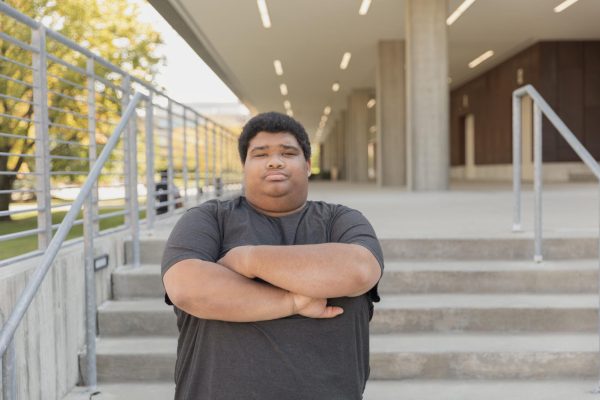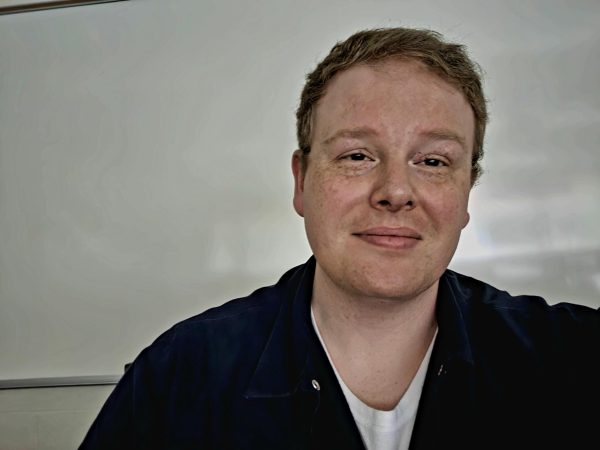Letter to the editor: Campus parking signs
I pulled into the parking lot between O’Dowd and Pryale Hall on the morning of September 9 to see 10 new signs: “O.U. Permit Parking Only.” 8 of those signs also added “School of Medicine.” The signs didn’t explain further. Apparently, people like me have no business knowing who gets to park in the exclusive “O.U. Permit,” and “School of Medicine” areas. I suspect the spaces aren’t reserved for students (at the School of Medicine or elsewhere). I know they’re not reserved for faculty outside the School of Medicine. They may be reserved for faculty at the School of Medicine, but I suspect they’re reserved for administrators.
In some ways, the most surprising thing about this development is that it took so long to happen. The increasing number of segregated parking spaces has a story. It’s a story that reveals an important facet of the social life on OU’s campus.
When I came to Oakland more than 20 years ago, I was pleasantly surprised by the fact that parking on campus was free—and even more surprised that there were relatively few reserved spaces. Parking on campus was really a glorious free-for-all. I wouldn’t say this played a decisive role in my decision to choose OU over my other options, but it made me proud of the university. Every other university I had been associated with—or even knew about—required fees for parking passes. It struck me then that Oakland University was an egalitarian campus. Custodians, faculty, (some) administrators, staff and students parked next to each other. This arrangement seemed right.
As I remember it, the changes began at Wilson Hall in the wake of campus shootings across the country. It appeared then that the administration decided to protect the university’s most valued employees: the president, the provost and their staff. They added steel security doors with key pad access. Some time later, they decided to restrict access to the parking lot behind Wilson. I’ve organized many events in the Oakland Center, so I often parked there to make it easier to bring in supplies for the events. The restricted parking required several trips to my car in the main parking lots. More importantly, restricting access reduced the area on campus that was open to everyone—as if someone had put a fence around a public park. In eighteenth-century England, when the aristocracy enclosed common areas with fences, local villagers often went on walks around the perimeter of commons areas, trampling fences that got in their way.
This erosion of the egalitarian community spaces on campus prompted me to wonder: did the administrators in Wilson need special parking? Were they so important that it was worth the expense of remodeling the parking lot? Did the possibility of parking near students, faculty and staff make them uncomfortable?
Creating reserved parking lots and spots structures privilege. It both reflects and creates inequality. It is troubling that these structures of privilege pop up without explanation (to say nothing of justification). The silence that attends these decisions suggests that the administration sees this segregation, this privilege, as natural. It’s natural that administrators be relieved of having to roam the lots looking for spots because their time is more valuable. Time, they say, is money. And money and its privileges are the issue here, finally.
However, one of a university’s sacred responsibilities is to challenge assumptions about what is natural and what goes without saying. The fact that universities have played a role in justifying past inequalities and injustices does not justify reinforcing antidemocratic practices that assume wealth deserves special treatment.
Ultimately, this isn’t really about parking. I don’t want a reserved spot. I enjoy walking. Rather, this is about principles, about values. It’s about resisting hierarchies that disrupt the campus community. I don’t think these signs would have bothered me the way they have were it not for the scars the recent contract negotiations have left on me. Like the negotiations, the signs are evidence of the increasing hierarchization of the university. They point to an us vs them mentality that is spreading across campus. Parking is a sign of inequality. It is a material expression of otherwise intangible values.
Letters to the editor can be submitted to [email protected].






Anonymous • Sep 12, 2021 at 1:54 PM
Oh, well: President, Chief of Staff, Chief Diversity Officer, and all those VIPs cannot stand the very thought of parking on an equal footing with such rubbish as faculty, staff, and students.